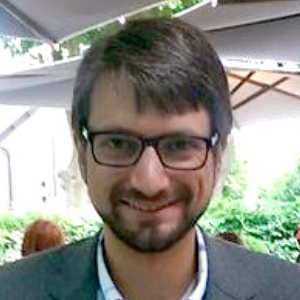Contact with the outside world is challenging for robots due to its inherently discontinuous nature — when a foot or hand is touching a surface, the forces are completely different than if it is just above the surface. However, most of our computational and analytic tools for planning, learning, and control assume continuous (if not smooth or even linear) systems. Simple models of contact make assumptions (like plasticity and coulomb friction) that are known to not only be wrong physically but also inconsistent.

In this talk I will present techniques for overcoming these challenges in order to adapt smooth methods to systems that have changing contact conditions. In particular I will focus on two topics: First, I will present the “Salted Kalman Filter” for state estimation over hybrid systems. Second, I will show a few techniques for generating new controllers with changing contact conditions, using both higher-order direct collocation and hybrid iLQR.
Prof. Aaron Johnson is an Associate Professor in Mechanical Engineering at Carnegie Mellon University, working on legged robots, adaptive controls, contact-rich manipulation, physics based planning and learning, and terrain manipulation as director of the Robomechanics Lab. Previously, his postdoc focused on convergent manipulation planning algorithms in the Personal Robotics Lab at Carnegie Mellon University. He received his Ph.D. in 2014 on self-manipulation and dynamic behaviors on legged robots (among other things) in Kod*lab at the University of Pennsylvania. He is the recipient of the NSF CAREER award, the ARO Young Investigator Award, the CMU George Tallman Ladd Research Award, and the Best Workshop Paper at the ICRA Workshop on Legged Robots.